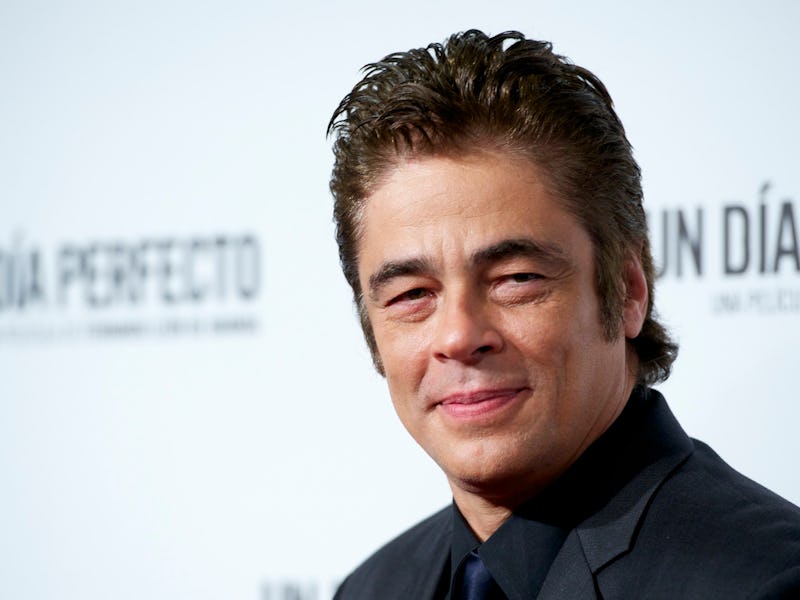Revisiting Christopher McQuarrie's Modern Western 'The Way Of The Gun'
Guns, American Style.

Since 2008, a large percentage of Christopher McQuarrie’s work has involved Tom Cruise. All of those four major action pieces — Valkyrie, Jack Reacher, Edge Of Tomorrow, and Mission: Impossible: Rogue Nation — each do their bit to expand the well-trod action terrain. They’re inventive, clever, and broad enough to appeal to a mass audience. With the exception of Rogue Nation, reliant on the MI brand’s selling points, they entertain concerns other than: What can we get Cruise to scale next?
With an eye to penning this piece, I rewatched McQuarrie’s directorial debut Way Of The Gun, curious to spot early signs of this later authorial confidence. The gun-totin’ contemporary Western dropped fifteen years ago this week and stars Ryan Phillippe and Benicio Del Toro as an unlikely pair of criminals on a botched mission. Its mixed reaction and so-so box office buried it immediately, only in later years would it score acclaim as a contemporary classic. I considered myself among those who relished its downbeat plotting, believing its critical ambivalence was a sign of its true, unrealised greatness.
Upon revisiting the film, I found myself nodding along with those early detractors. Somehow in the 15 years since its release — during which I’d seen the movie twice — its cracks have deepened, those gaping flaws now unmissable. At the time of its release, it bore the weight of an exhausted post-Tarantino era, wherein all gritty crime movies sought to match the former video clerk’s enthusiasm for reinvention. The trouble with trendsetters is their blinding influence. Once you’ve met the Reservoir Dogs, it’s hard not to prop them up as a yardstick for comparison. Tarantino switched out an era of shadowy thugs for philosophizing crooks. The collateral? Practically every other crime film of the ‘90s features at least one goon with an eye to being the next Sartre.
Way Of The Gun certainly puffs up some of its characters with introspective rants that could easily be mistaken as Pulp Fiction b-roll footage, yet those passing moments that suck you in — and they’re sadly all too brief — are surrounded by a bloated 120-minute film that required ruthless editing to slice away flab. Cut through for yourself, and McQuarrie’s sharp scripting of The Usual Suspects returns in full force. Given free reign to envision his own material through a lens, the result is a surprisingly harrowing crime tale.
The opening scene plays now as a response to the verbose criminals of ‘90s cinema, as if McQuarrie were attempting to placate the new standards of the genre by spewing out the worst retorts possible. And then pointing a finger at how silly it all sounds. Our two antiheroes stand in the neon-lit parking lot of a scummy dive bar (called Dive Bar, another stab at the trope) fielding a barrage of abuse from Sarah Silverman whose foul-mouthed invective sounds completely improvised — unlike the barbs from Phillippe. He’s never quite found his footing in any of his performances, unable to sound convincing reciting whatever it is he’s learned by rote from his script pages. Try as he might to come off as threatening, his first line — “Shut that cunt’s mouth or I’ll come over there and fuck-start her head” — makes him sound like a kid repeating things he’s overheard:
Apparently, McQuarrie was reluctant to cast Phillippe in the part of Parker, changing his mind after the babyfaced actor packed on some muscle and grew a scratty beard. Out of the problems underpinning the film, Phillippe’s performance is the most obvious. It’s not that he’s awful — but again, he’s not terribly convincing as a hardened murderer. Watching him, you’re aware that you are witnessing an actor playing a role. Whereas his partner in crime played by one of McQuarrie’s Suspects Benicio Del Toro oozes cool. You believe he’s the character.
And that’s where the similarities to the 1995 flick end. It’s less of a fun time caper than Suspects and more of a bleak observation on criminal lifestyles. Their aspirations, their quests for wealth, and all the people affected by those decisions, presented in a messy knot of narrative threads that pull in every direction possible. Which is a bit of a bother to untangle, but here’s the gist: Parker (Phillippe) and Longbaugh (del Toro) learn of a surrogate pregnancy that’s being carried out on behalf of billionaire Hale Chidduck (Scott Wilson - aka The Walking Dead’s Hershel) and his wife. They plan to take the surrogate hostage and demand a $1 million ransom. A simple-enough plan that goes wrong fast.
Where four years prior Fargo, a superior example of conjoining story arcs, makes the pauses for character revelation count - Way of The Gun squanders them. With the exception of one superb scene between Del Toro and James Caan’s bagman, they all linger a little too long padding out the film’s true meaty core.
And that’s where McQuarrie demonstrates his talent for marrying content and style: the solid action beats. Whether you’re watching a horrendous caesarean performed in a germ-infested bar backroom, or a lengthy bout of Peckinpah-inspired gunplay, it’s the terse action scenes where the real treasure lies. It’s a damn shame the moments surrounding them aren’t quite as enlivened.